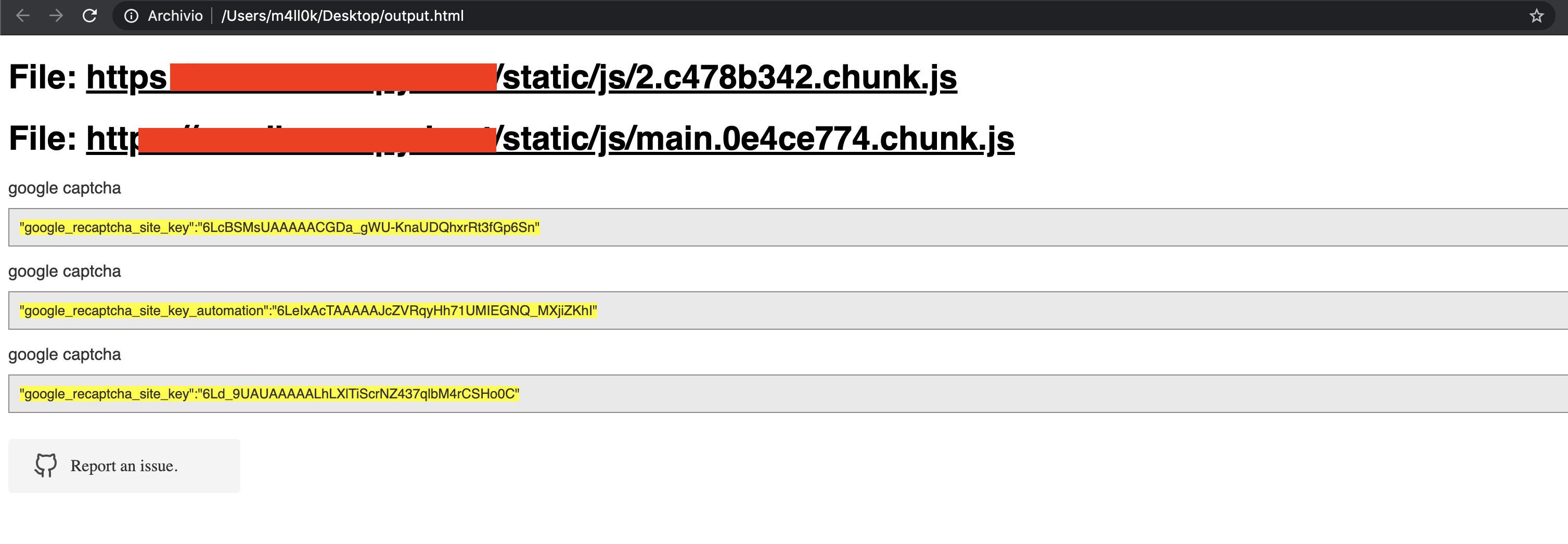Offensive Security Tool: SecretFinder

Reading Time: 3 Minutes
Offensive Security Tool: SecretFinder
Have you ever had secrets for your apps in multiple places? Some are environment variables. Others are in a third party providers like AWS SSM, AWS Secrets Manager, Hashicorp Vault, Google API, Facebook API or any other number of places. Pulling from these locations can be frustrating if you have 2 or 3 in one app for various reasons. SecretFinder provides you a way to have a single unified api to pull from any number of locations.
SecretFinder
SecretFinder written by m4ll0k, is a python script based on LinkFinder, written to discover sensitive data like apikeys, accesstoken, authorizations, jwt,..etc in JavaScript files. It does so by using jsbeautifier for python in combination with a fairly large regular expression. The regular expressions consists of four small regular expressions. These are responsible for finding and search anything on js files.
The output is given in HTML or plaintext.

See Also: Cisco Smart Switches Riddled with Severe Security Holes
Help
usage: SecretFinder.py [-h] [-e] -i INPUT [-o OUTPUT] [-r REGEX] [-b]
[-c COOKIE] [-g IGNORE] [-n ONLY] [-H HEADERS]
[-p PROXY]
optional arguments:
-h, --help show this help message and exit
-e, --extract Extract all javascript links located in a page and
process it
-i INPUT, --input INPUT
Input a: URL, file or folder
-o OUTPUT, --output OUTPUT
Where to save the file, including file name. Default:
output.html
-r REGEX, --regex REGEX
RegEx for filtering purposes against found endpoint
(e.g: ^/api/)
-b, --burp Support burp exported file
-c COOKIE, --cookie COOKIE
Add cookies for authenticated JS files
-g IGNORE, --ignore IGNORE
Ignore js url, if it contain the provided string
(string;string2..)
-n ONLY, --only ONLY Process js url, if it contain the provided string
(string;string2..)
-H HEADERS, --headers HEADERS
Set headers ("Name:Value\nName:Value")
-p PROXY, --proxy PROXY
Set proxy (host:port)
Installation
SecretFinder supports Python 3.
$ git clone https://github.com/m4ll0k/SecretFinder.git secretfinder
$ cd secretfinder
$ python -m pip install -r requirements.txt or pip install -r requirements.txt
$ python3 SecretFinder.py
See Also: Jeff Moss, aka Dark Tangent, the person who founded DEF CON and Black Hat
Usage
- Most basic usage to find the sensitive data with default regex in an online JavaScript file and output the HTML results to results.html:
python3 SecretFinder.py -i https://example.com/1.js -o results.html
- CLI/STDOUT output (doesn’t use jsbeautifier, which makes it very fast):
python3 SecretFinder.py -i https://example.com/1.js -o cli
- Analyzing an entire domain and its JS files:
python3 SecretFinder.py -i https://example.com/ -e
- Ignore certain js file (like external libs) provided by
-g --ignore
python3 SecretFinder.py -i https://example.com/ -e -g 'jquery;bootstrap;api.google.com'
- Process only certain js file provided by
-n --only:
python3 SecretFinder.py -i https://example.com/ -e -n 'd3i4yxtzktqr9n.cloudfront.net;www.myexternaljs.com'
- Use your regex:
python3 SecretFinder.py -i https://example.com/1.js -o cli -r 'apikey=my.api.key[a-zA-Z]+'
- Other options: add headers,proxy and cookies:
python3 SecretFinder.py -i https://example.com/ -e -o cli -c 'mysessionid=111234' -H 'x-header:value1\nx-header2:value2' -p 127.0.0.1:8080 -r 'apikey=my.api.key[a-zA-Z]+'
- Input accept all this entries:
- Url: e.g. https://www.google.com/ [-e] is required
- Js url: e.g. https://www.google.com/1.js
- Folder: e.g. myjsfiles/*
- Local file: e.g /js/myjs/file.js
add Regex
- Open
SecretFinder.pyand add your regex:
_regex = {
'google_api' : r'AIza[0-9A-Za-z-_]{35}',
'google_captcha' : r'6L[0-9A-Za-z-_]{38}|^6[0-9a-zA-Z_-]{39}$',
'google_oauth' : r'ya29\.[0-9A-Za-z\-_]+',
'amazon_aws_access_key_id' : r'AKIA[0-9A-Z]{16}',
'amazon_mws_auth_toke' : r'amzn\\.mws\\.[0-9a-f]{8}-[0-9a-f]{4}-[0-9a-f]{4}-[0-9a-f]{4}-[0-9a-f]{12}',
'amazon_aws_url' : r's3\.amazonaws.com[/]+|[a-zA-Z0-9_-]*\.s3\.amazonaws.com',
'facebook_access_token' : r'EAACEdEose0cBA[0-9A-Za-z]+',
'authorization_basic' : r'basic\s*[a-zA-Z0-9=:_\+\/-]+',
'authorization_bearer' : r'bearer\s*[a-zA-Z0-9_\-\.=:_\+\/]+',
'authorization_api' : r'api[key|\s*]+[a-zA-Z0-9_\-]+',
'mailgun_api_key' : r'key-[0-9a-zA-Z]{32}',
'twilio_api_key' : r'SK[0-9a-fA-F]{32}',
'twilio_account_sid' : r'AC[a-zA-Z0-9_\-]{32}',
'twilio_app_sid' : r'AP[a-zA-Z0-9_\-]{32}',
'paypal_braintree_access_token' : r'access_token\$production\$[0-9a-z]{16}\$[0-9a-f]{32}',
'square_oauth_secret' : r'sq0csp-[ 0-9A-Za-z\-_]{43}|sq0[a-z]{3}-[0-9A-Za-z\-_]{22,43}',
'square_access_token' : r'sqOatp-[0-9A-Za-z\-_]{22}|EAAA[a-zA-Z0-9]{60}',
'stripe_standard_api' : r'sk_live_[0-9a-zA-Z]{24}',
'stripe_restricted_api' : r'rk_live_[0-9a-zA-Z]{24}',
'github_access_token' : r'[a-zA-Z0-9_-]*:[a-zA-Z0-9_\-]+@github\.com*',
'rsa_private_key' : r'-----BEGIN RSA PRIVATE KEY-----',
'ssh_dsa_private_key' : r'-----BEGIN DSA PRIVATE KEY-----',
'ssh_dc_private_key' : r'-----BEGIN EC PRIVATE KEY-----',
'pgp_private_block' : r'-----BEGIN PGP PRIVATE KEY BLOCK-----',
'json_web_token' : r'ey[A-Za-z0-9-_=]+\.[A-Za-z0-9-_=]+\.?[A-Za-z0-9-_.+/=]*$',
'name_for_my_regex' : r'my_regex',
# for example
'example_api_key' : r'^example\w+{10,50}'
}
See Also: Offensive Security Tool: CloudFail











